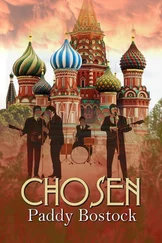But then, suddenly, around the middle of 1938, with the Czech crisis deepening and the world edging towards war, the quality of Thümmel’s intelligence began to change dramatically. In May he told Bartik that the Germans were preparing a campaign of sabotage and disruption leading to a coup in the Sudetenland by the end of that month. It is very probable that these reports from Thümmel were the basis for an urgent message sent by Group Captain Graham Christie, one of Sir Robert Vansittart’s secret informants who operated from Prague, who reported that ‘Both SIS in Prague and Czech military intelligence report German troop manoeuvres on the border which … [point] to an early invasion.’ What followed was a scurry of intense diplomatic activity aimed at averting the coming ‘invasion’. The British ambassador in Berlin warned the head of the German Foreign Office of the gravity of the situation, and reinforced the message in a personal interview with Ribbentrop. Using a most un-Foreign-Office-like double negative, he told the German foreign minister that if Czechoslovakia was attacked, ‘His Majesty’s Government could not guarantee [not] … to become themselves involved’.
In fact the whole thing was an elaborate hoax. There was no German invasion planned for May. Hitler was not yet ready.
There is only one likely explanation for this seemingly bizarre prologue to the coming Czechoslovak crisis – Paul Thümmel had been used by Canaris, or someone very close to him at the top of the Abwehr, to pass false information in order to alert the wider world to Hitler’s plans to invade the Sudetenland in the near future. There is no evidence that Czech intelligence’s confidence in their new agent was shaken by the false alarm he had caused in May 1938 – probably because it served Czechoslovakia’s purposes too, and because they realised that it was intended to do so.
Hitler, however, was furious at being pre-empted, and at the diplomatic furore that ensued.
Now things began to move from elaborate charade to true high drama. Over June and July 1938 Thümmel provided Bartik with the secret order from Hitler instructing his generals to be ready for Operation Green – the invasion of Czechoslovakia – by 1 October. In early September Thümmel followed this with the full details of the invasion plan, including troop deployments, invasion points and other important information.
By now Bartik must have known that A54 was far, far more than just a low-level Abwehr draughtsman/photographer in Dresden. Paul Thümmel was needy, vain and greedy. But he was also a high-level spy with direct access to the most senior levels of the Tirpitzufer in Berlin.
5
Germany in the Shadow of War
By 1938 Goerdeler, Beck and Canaris, together with other Berlin conspirators, were gathering regularly under the cover of the prestigious Free Society for Scholarly Entertainment, colloquially known as the Mittwochgesellschaft (Wednesday Society) after the day of the week on which it met. Slowly the ad hoc resistance network against Hitler was becoming a formal structure gathered around the three men who would be its initial driving force.
Carl Goerdeler was the movement’s Thomas More: formidably intelligent, spiritually resolute, unshakeably optimistic and driven by a burning sense of mission and the conviction that reason always triumphs over evil. But the superiority of his intelligence made him insensitive to others, brittle in personal relationships, uncomfortable in his certainties and annoyingly didactic (his colleagues called him ‘ Pfaf ’, German slang for preacher). His utopianism rendered him completely devoid of the worldly wisdom and darker political skills necessary to deal with a tyrant, especially one so pathologically barren of moral values as Adolf Hitler.
If Goerdeler was More, then Canaris was Talleyrand, but with charm in place of a repugnant personality, and a powerful moral compass where Talleyrand had none. His subtle, flexible spirit was quite capable of operating simultaneously at two contradictory levels without losing its way; the perfect mind for a spy chief. Canaris preferred the tangential rather than the direct route for dealing with Hitler, delivering little successes to his master, the better subtly to confound his grander megalomaniac designs.
The third member of this trio, ‘the philosopher general’ Ludwig Beck, was a soldier’s soldier in the tradition of Frederick the Great. He admitted no contradiction between his profession and a life sustained by the values of the Enlightenment. He was the man everyone trusted and everyone looked up to – but for his moral and intellectual qualities, not his soldiering ones.
Post-war opinion has often mistakenly believed that Hitler led a united nation into war. This is far from the truth. By the mid-1930s most Germans supported what Hitler had done through his much-vaunted ‘triumph of the will’ to restore German pride, redress the humiliations of Versailles and bring order to the chaos of the Weimar years. They wanted him to continue making Germany strong again, but not – definitely not – at the price of another war. Public support for Hitler’s policy of toughness with Germany’s neighbours was in large measure due to the fact that he successfully portrayed himself in each of the pre-war crises as the peacemaker, not the warmonger. The popular mood in Germany was in favour of the new chancellor, but it was also deeply fearful, and strongly opposed to another war.
Among the institutions of the German state, the picture was rather more mixed.
Obviously those around Hitler knew of his plans for war. Most, such as Himmler and Ribbentrop, supported the Führer. But some, like Göring, were more cautious. Others, such as the minister of economics and president of the Reichsbank Hjalmar Schacht, hovered in the outer circles of the resistance, without ever quite allowing themselves to be drawn fully in.
In 1938, after a spell as ambassador to London, Joachim von Ribbentrop was appointed as Hitler’s new foreign minister. In both jobs he acted as the faithful echo to his master’s opinions and demands. The German Foreign Office over which he presided was, by contrast, a hotbed of active resistance to the Führer and his plans. One of the most prominent of the Foreign Office conspirators was Ernst von Weizsäcker. The father of a future German president, von Weizsäcker believed that Hitler’s foreign policy would inevitably lead to war. Like Canaris, Weizsäcker had served as a naval officer in the First World War. Now, as state secretary, he was the most senior Foreign Office official under Ribbentrop. Also like Canaris, Weizsäcker chose, at least initially, to oppose Hitler by indirect means, through what he described as ‘feigned cooperation’, while conspiring ‘with the potential enemy for the purpose of ensuring peace’. A number of more junior Foreign Office officials shared von Weizsäcker’s views, but were more direct in their opposition, and more deeply engaged in the resistance cause. These included Oxford-educated Adam von Trott zu Solz and the brothers Kordt, one of whom, Erich, held a senior position in Ribbentrop’s Berlin office, while the other, Theo, served in the German embassy in London.
When it came to the German armed forces, the Luftwaffe, being the newest arm and therefore unencumbered with traditions, was in the main loyal to Hitler, and played no part in the resistance. The navy, the Kriegsmarine, with the exception of Canaris, preferred to steer well clear of politics.
It was in the German army that the resistance found its leading figures. These came mostly from the senior ranks and those who had belonged to the professional army before the war. Drawn in large measure from the old aristocracy and trained in the Prussian tradition, the army was an institution like no other in the German state. Sustained by its aristocratic roots, it had – at least in its own eyes – a degree of independence from the government of the day. This included, in extremis, the presumed right to unilateral action as the guardian and physical expression of the German nation. In normal times the army’s leaders enjoyed a large degree of autonomy in the conduct of their operations, and an entitlement to be consulted and listened to when it came to foreign policy and statecraft. Underpinning all this was the Prussian officer code Üb Immer Treu und Redlichkeit .
Читать дальше












